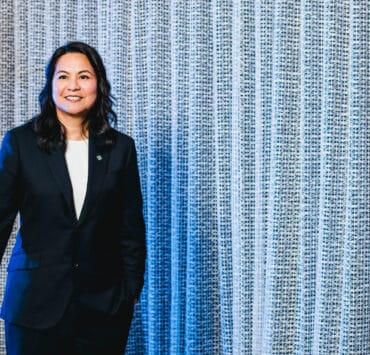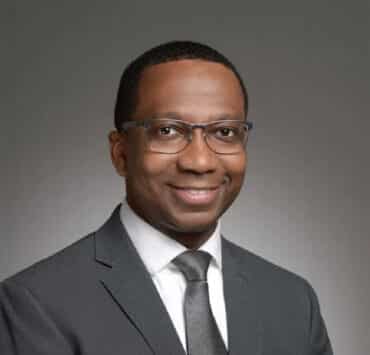When it comes to gaining experience in the courtroom, Michelle Dibadj knows just how rare an occasion it can be.
“When I think about our next generation of attorneys, there are just fewer and fewer cases going to trial,” the senior director of claims and litigation at Ascension explains. “There are fewer opportunities for law firm associates to develop into trial attorneys, so what steps can we take to help prepare young defense attorneys?”
As one of the country’s largest nonprofit Catholic health systems, Ascension understands its obligation to advocate for good medicine, compassionate care, and justice in healthcare. “It’s not just on the law firms and their succession plans,” Dibadj says. “I believe healthcare organizations and insurance carriers need to take part in producing the next generation of trial attorneys.”
Ascension recently developed its Second Generation program, which is currently being piloted. The program focuses on cases where the associate has the opportunity to learn more and be mentored more as well as the opportunity to perhaps try the case too. Associates from firms are able to gain valuable experience by shadowing more senior attorneys and performing tasks under the guidance of mentors. Along with mentoring, there are also education components that cover popular topics, like defending damages.
“Our trial attorneys aren’t going to be working forever, so we need to think about who will be trying our cases in the future,” Dibadj says. “I’ve had great mentors along the way, especially at Ascension, and I’m glad we’re able to provide that same experience for our future trial attorneys.”
“Our trial attorneys aren’t going to be working forever, so we need to think about who will be trying our cases in the future.”
Michelle Dibadj
Dibadj has been advocating for healthcare providers since before she even considered law school. Her father was a pediatrician who practiced in Illinois for more than forty years and her mother, originally an X-ray technician, went on to work at his office. “My dad was an involved provider in a lawsuit, and just watching the emotional toll on him inspired me to attend law school in order to defend good medicine and fight frivolous lawsuits,” she says.
The senior director originally followed her parents into healthcare, earning her nursing degree, but the law ultimately won out. Prior to joining Ascension in 2010, Dibadj practiced as a medical liability defense attorney representing healthcare providers and hospitals in Missouri and Illinois. She joined Ascension in 2010, first as a claims manager and litigation counsel, then was promoted twice.
After practicing for many years as a medical liability defense attorney, Dibadj admits she initially struggled with the mindset shift to represent a mission-focused healthcare ministry. An example of this is Ascension’s CORE (Communicate Openly. Resolve Early.) program. “Ascension really lives its mission and vision, and that includes being transparent with our patients and our families after an unanticipated adverse event,” she explains. This program involves reviewing the care provided and communicating those findings with patients and their families and resolving cases early, if appropriate.
In concert with Ascension’s CORE program, Dibadj says Ascension’s Provider Associate Care Team (PACT) program, a peer-to-peer initiative, helps health providers cope with a significant emotional impact following an unanticipated adverse event. “PACT recognizes the needs of providers and allows emotional support for them to engage in healing,” she says. “It’s part of our culture of safety, and I hope other healthcare organizations are offering peer to peer support.”
As a former nurse, medical liability defense attorney, a working mother, and someone who understands the time demands of healthcare workers, Dibadj is intimately familiar with the difficulty of attaining anything close to a work-life balance. “As a working mother, trying to balance working at a law firm with billable hours and taking care of my child was tough.”
The lawyer says her mentor at her first law firm instilled in her the daily drive to focus and work hard in the office in order to make her time outside the office as family focused as possible. After transitioning to fully remote work at home, she no longer had a long commute. Although cutting out the commute was a good thing, Dibadj says it also introduced the challenge of separating work and life.
“Just because it doesn’t happen now, doesn’t mean it’s not going to happen.”
Michelle Dibadj
She’s managed the balance by understanding that things will happen at their own pace. It’s an amazingly refreshing take, given just how primed many of us can be to achieve the next milestone in our careers.
“It took me ten years to be promoted to a director, and granted, I had a young child, but I was still doing things to make myself ready for the opportunity when it came,” the attorney explains. “Your career doesn’t have to be this steady stair-step of climbing. Know where you want to go and what steps you can take to get there.”
She continues, “But also, try and understand that sometimes it’s not the right moment. It will come, but sometimes it’s best to focus on personal growth and making yourself ready for that next opportunity. Just because it doesn’t happen now, doesn’t mean it’s not going to happen in the future.”
While it may have taken Dibadj a decade to become a director, the programs she has contributed to during her tenure for patients, health providers, and attorneys are much better off as a result of her tireless commitment.
Congratulations to Michelle Dibadj on her well-deserved recognition as a leader and innovator in healthcare. Hall Prangle & Schoonveld is proud of its longstanding relationship with Ascension Health and with Michelle and commends Michelle for her progressive spirit. We at HPS are grateful to partner with Ascension in their mission to provide efficient and effective healthcare services globally.


